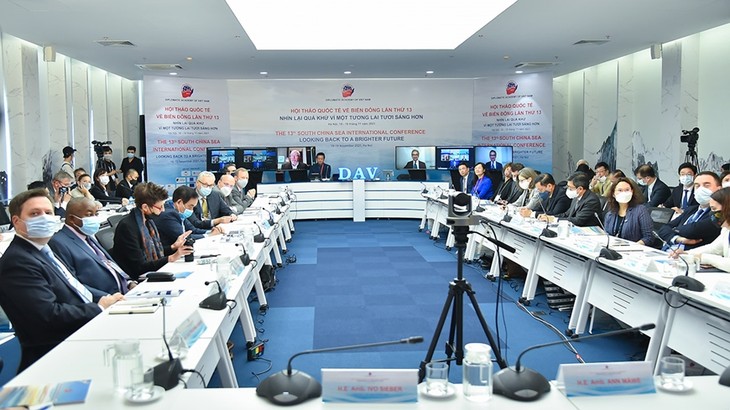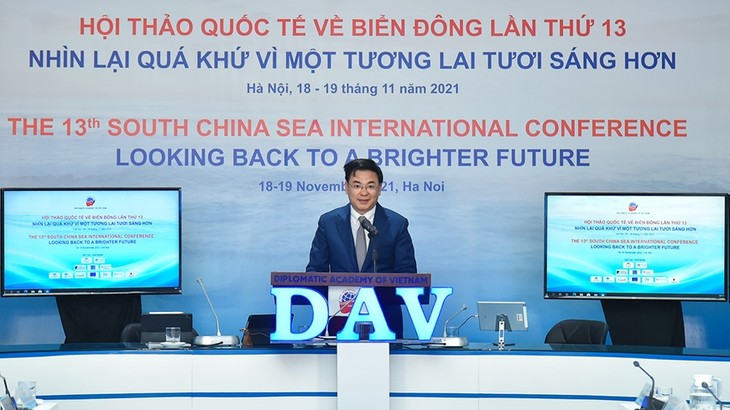East Sea International Conference creates substantial transformation
Anh Huyen -
(VOVWORLD) - More than 500 international scholars, researchers and diplomats are attending the 13th International Conference on the East Sea (internationally known as the South China Sea) in Hanoi. Held for the first time in 2009, the Conference has become an important channel of information exchange, pointing out the origin of disputes, promoting dialogue, checking disagreements, and upholding international law with the ultimate goal of building a peaceful and stable East Sea.
 Participants to the 13th International Conference on the South China Sea (Photo: Trung Do) Participants to the 13th International Conference on the South China Sea (Photo: Trung Do) |
East Sea on the "global chessboard" of superpowers
The US-China global strategic competition has spread from finance, economics, and politics to science and technology, posing the risk of involving other countries and negatively affecting the current world order. It is no surprise that the East Sea has become a focus of tension between the US and China.
A newly emerging power with a growing military and economic prowess, China considers the East Sea an area to show its strength and monopolize as the first step of establishing China as the world's leading power in the new era. Beijing has long viewed East Sea control as part of its core interests. The US wants to maintain its presence in the Asia-Pacific and considers East Sea security and stability to be its national interest. During his term as President, Donald Trump upgraded this perception to a strategy on a free, open Indo-Pacific. The US and China have a conflict of interest in their approach to the East Sea and this conflict has increased over time.

Deputy Minister of Foreign Affairs Pham Quang Hieu speaking at the conference. (Photo: qdnd.vn)
|
Creating substantive transformation, contributing to peace and cooperation
The East Sea’s instabilities directly affect the countries in the region. The legitimate rights and interests of coastal states have not been fully respected.
The East Sea International Conference, a practical forum initiated by Vietnam, has contributed to finding solutions and easing tensions. Through 13 annual meetings, the forum has gained traction both inside and outside the region. Discussions have focused on pressing topics, expanded the involvement of policy makers and bridged formal and informal channels to create substantive changes for peace and cooperation in the East Sea.
The ongoing 13th conference reached a consensus on upholding existing legal frameworks, particularly the 1982 United Nations Convention on the Law of the Sea (UNCLOS). Many scholars pointed to this Convention as a "green charter" of humanity that provides every country a basis for determining the extent of its waters.
Although some Chinese scholars believe UNCLOS has some "ambiguities" which they say have been taken advantage of by other countries to make unreasonable claims, their argument is widely rejected. Most experts said the Convention provides a legal basis for countries to settle maritime disputes and creates a mechanism for resolving conflicts clearly in accordance with international law. Conference participants called for a joint effort to defend the 1982 UNCLOS and find clear-cut interpretations to some of provisions that can be misrepresented in favor of a certain party. The maritime legal order based on UNCLOS has drawn international support. All parties to UNCLOS are obligated to comply with it.
Anh Huyen